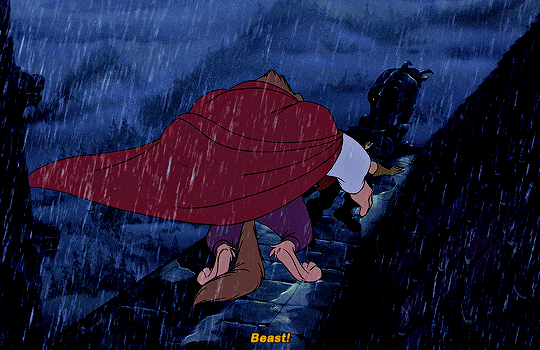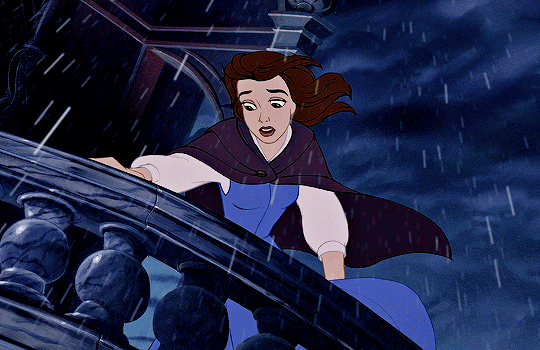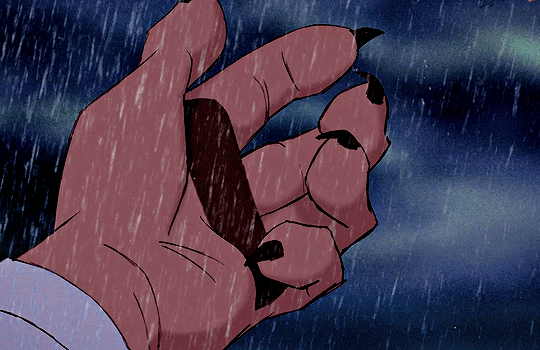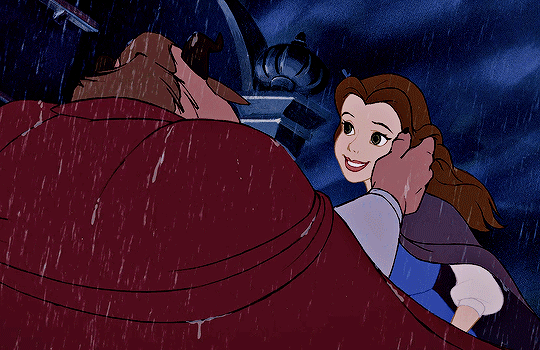How long shall I be shepherd to the stars with eyes that cannot help but see them rise and set and rise right to the last night of eternity? twitter: @misscosmicdreadtwitch: valkyrieofthevikingsdiscord:valkyrieofvalhalla#9802
Don't wanna be here? Send us removal request.
Photo



Man vs. Monster
As I said in my essay “Through a Mirror Darkly”, Gaston is an evil counterpart to the Beast. In fact, he is virtually the first Disney Villain to be a well-rounded character and have many similarities, and some simultaneous distinct differences, with his protagonist enemy.
Both are blue-eyed males who are selfish, impatient, disrespectful, rude, irritable, spoiled, quick-tempered, stubborn, aggressive, and entitled in personality.
Both are or regarded as the leaders of a location in which they have a group of followers. The Beast is the prince of his castle and lives there with his servants, while Gaston is more-or-less the leader of the village where he lives alongside many other villagers.
Both are approached by elderly people who ask for their help, but they kick out those people instead of helping them.
Both want to use Belle for their own selfish interests. The Beast wants her to help him break his curse and Gaston wants to make her his trophy wife and personal slave.
Both face rejection from Belle after they treat her poorly, and become furious afterwards. She refuses Gaston’s marriage proposal and later refuses to eat dinner with the Beast.
However, Gaston and the Beast show noteworthy differences in terms of character development as the movie unfolds.
The Beast starts off as a monster in not just looks, but in personality and behavior. Like a feral animal, he walks (and even runs) on all four limbs, leaps across large spaces, growls, roars, and shouts at the top of his lungs when angered, and has a very short temper that constantly gets the best of him when he is impatient, frustrated, and annoyed. Even his incomplete wardrobe, with his lack of a shirt, raggedy breeches, and torn cape, shows just how far he has descended from human to monster since being cursed. Although he wants to break his curse by falling in love and being loved in return, the Beast’s dual nature makes him truly uncertain that he can ever become human again. He is greatly ashamed of the monstrous aspect of himself, as it serves as a reminder of both what he had done and what he had become. Thus, he believes no woman would ever love him or see him as anything but a monster due to his appearance and temper. In his first attempt to charm Belle to break the spell, the Beast comes on too strongly when he harshly orders her to have dinner with him, saying it’s not a request. After she refuses, he furiously makes threats of breaking down her door and weakly tries to use good manners until he ultimately declares that she can’t eat at all if she doesn’t eat with him. However, after he saves Belle from the wolves and she heals his wounded arm, the Beast begins to change into a more civilized, mature individual, which shows how he gradually regains his humanity. He starts walking upright more regularly and relearns table manners after initially trying to eat very sloppily and without cutlery. He gives Belle his library, encourages her to read since it’s what she loves, and delights in listening to her read stories. Even his wardrobe undergoes a significant change, as he discards his tattered cape and pants for a greater variety of formal attire, including collared shirts, a blue cape (instead of the red one), and jackets and vests with gold trimmings that show his princely rank. The Beast’s changes are most prominently shown in his personality, as he becomes a more disciplined, gentle, kind, selfless being. He learns to respect Belle, treats her as equal, and much better than he previously did, and genuinely falls in love with her for her intelligence and independence. The Beast’s love for Belle is conclusively proven when he allows her to leave so she can help her lost father, since he takes her feelings and needs into account before his own, even though time is running out for him to break the spell.
Likewise, Gaston starts off as a man, albeit a very flawed one. He prides himself on his good looks, great strength, and skills as a hunter that he believes he is the best man around. His traits have made him think that he can never do any wrong or be refused by anyone for anything, especially by beautiful women. Gaston’s love for himself borders on an incredibly toxic degree of vanity, narcissism, and egotism. Everyone in town likes and respects him, especially all of the young, single women who love him just for his good looks. As a result, Gaston believes that no woman could ever NOT love him…but the only woman on whom he has his sights is also the only one who is completely disinterested in him: Belle. He lusts after Belle and wants to marry her purely for her beauty, since he believes her being the most beautiful woman in town alone makes her the best, and so he believes he alone deserves her for being “the best”. However, Gaston’s attempts to charm and seduce Belle always fail due to his sexist, conceited, crass behavior. He always comes on too strongly by using force towards her and shows zero respect for her personal space, since he believes that women are inferior to men, and therefore he treats Belle as if he is her superior and tries to make her to do everything he wants her to do. Simultaneously, Gaston insults her love of literature and her gender when he makes misogynistic remarks about it being wrong for women to read since they shouldn’t be smart or get ideas. He further disrespects her space and also her personal property when he forcefully takes her book out of her hands, dirties it (on two separate occasions), and attempts to body block her every time she tries to move away from him and get it back, just to make her stop reading. Following Belle’s rejection of his marriage proposal, out of his own arrogance and pride, Gaston refuses to change his toxic masculine ways to properly win her love. Instead, he decides to force her to marry him using deception and manipulation. Though Gaston does wear a formal suit once, which is when he makes his preposterous proposal (because he foolishly believes he is going to marry Belle on the spot), he does not act like a well-mannered gentleman at all while wearing it. In his prior scene and all of his succeeding scenes, he always wears his bright red tunic, which hints at his refusal to change. Gaston’s growing obsession with Belle and jealousy over her love for the Beast consumes him that he becomes a deranged, barbaric, murderous monster by the film’s third act.
Similarly, the people around them act as the antithesis of each other.
Although the servants are objects based on the fact that the Beast has always treated them as such, they act like people because they have their own different, separate personalities and are capable of thinking and acting independently. Though they fear the Beast’s ferocious temper, they do not let their fear make them mindlessly obey every command he gives them. The servants frequently give him advice and tell him what he needs to hear, especially how he can improve himself to win Belle’s heart and break the spell. Even though they want Belle’s help to lift the curse, the servants never force her to do anything. Instead, they take a true shine to her after she gives up her freedom for that of her father. They make her feel welcome in the castle as much as they can, accepting her and treating her as one of them. After ten years of being enchanted, the servants are eager for and embrace change (though not just to regain their human forms by breaking the spell), which is another reason why they accept Belle.
On the other hand, the villagers, especially LeFou and the Bimbettes, are people, but act like objects (which is exactly how Gaston views them) because they all have the exact same personalities and absolutely no ability to act or think independently. It is also because they blindly admire and respect Gaston purely for his handsome appearance, brute physical strength, and hunting skills that they are completely oblivious (or just don’t care) to how flawed he really is in personality. Their admiration of him is so preposterously great that the villagers only ever tell Gaston things that he wants to hear rather than what he needs to hear. A perfect example is when they sing “Gaston” regarding how great and perfect he is, praising him for his flaws and bad habits instead of correcting them and suggesting how he can improve himself in order to win Belle’s heart following his proposal rejection. The villagers also shun Belle and treat her as an outcast for being so unconventional and different from the rest of them, including with her love of literature and lack of admiration for Gaston. Since they are content with the status quo of all of them and their lives being exactly the same every single day, the townspeople fear and reject change, which is another reason why they don’t accept Belle and only deem her as “odd”.
Fittingly, during the climax, when Gaston and the Beast battle on the castle tower, it’s a man vs. monster fight, but not the kind one may think. The Beast looks like a monster, but fights with patience and manly wits, while Gaston looks like a man, but fights like a savage, bloodthirsty beast. In fact, the two are further shown to be mirror images of one another by wearing clothes of the opposite colors (showing who is good and who is evil): the Beast wears a blue shirt and his red cape, while Gaston wears his red shirt and a blue cape.
As the two fight, Gaston continuously taunts the Beast over his appearance, but pushes the final button when he declares that Belle belongs to him and could never love a monster like the Beast. Enraged at this, the Beast overpowers Gaston and holds him by the throat as he prepares to drop him. But when Gaston drops his pride and pathetically begs for mercy, the Beast realizes that Gaston is the very monster he would have become if it wasn’t for Belle. Wanting to be better than Gaston for the sake of himself and for Belle, especially because by now he has come so close to breaking his curse, the Beast reluctantly spares Gaston and angrily yet calmly tells him to get out of his castle.

And in the end, true love finally prevails. Gaston dies as the monster he truly is, while the Beast’s curse finally breaks, and he and Belle get their happy ending. 😁😊❤️
579 notes
·
View notes
Photo


Take it with you, so you’ll always have a way to look back… and remember me.
1K notes
·
View notes
Photo
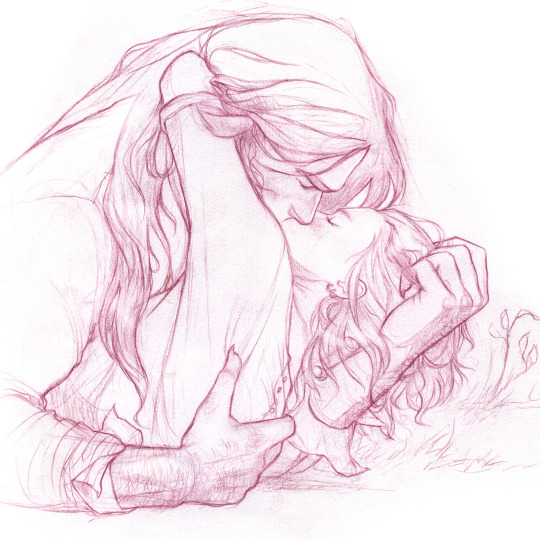
Lately I am obsessed with the idea of his big strong hands tangling in her hair
6K notes
·
View notes
Photo


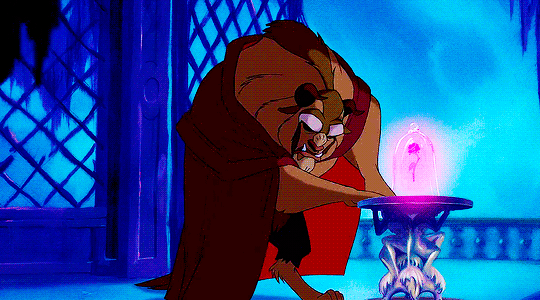
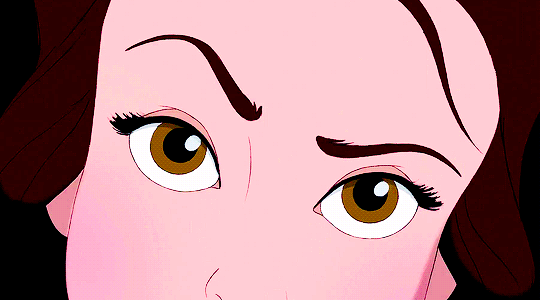


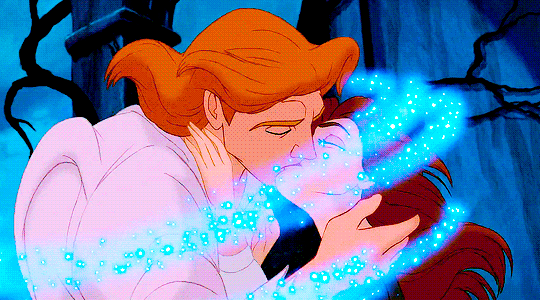

Film meme: [1/10] animation » BEAUTY AND THE BEAST (1991) If he could learn to love another, and earn her love in return by the time the last petal fell, then the spell would be broken. If not, he would be doomed to remain a beast for all time. As the years passed, he fell into despair and lost all hope. For who could ever learn to love a beast?
3K notes
·
View notes
Photo
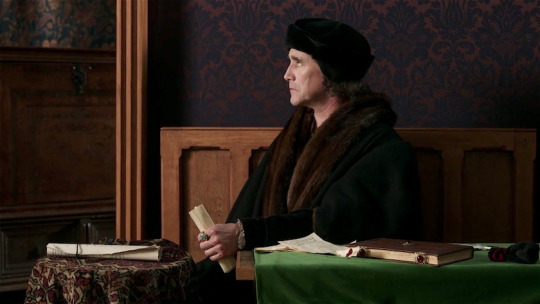



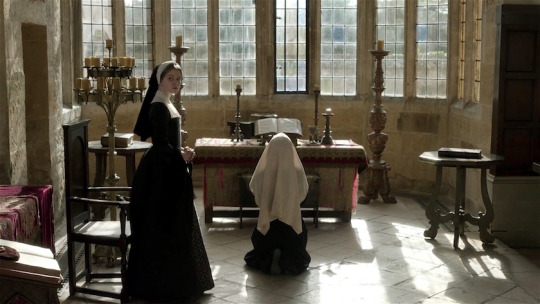


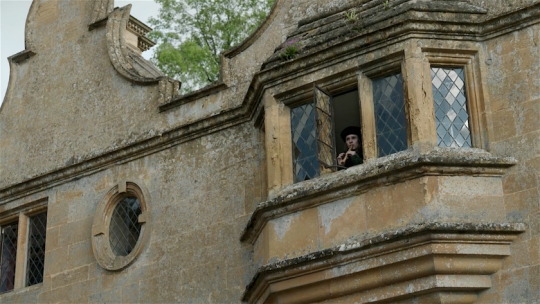
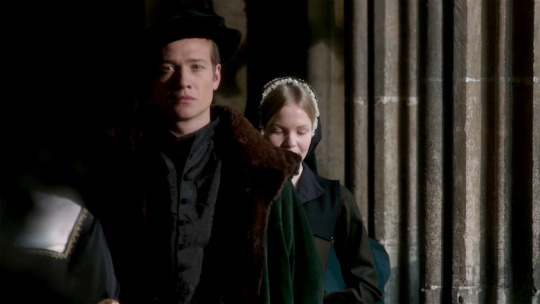
Wolf Hall (2015)
1.04, The Devil’s Spit
dir. Peter Kosminsky
122 notes
·
View notes
Photo










Richard Dillane as Charles Brandon, The Duke of Suffolk, in Episode 2 of Wolf Hall
10 notes
·
View notes
Photo


MARK RYLANCE as THOMAS CROMWELL
WOLF HALL (2015)
142 notes
·
View notes
Photo





Henry VIII in Wolf Hall, (requested by anonymous)
196 notes
·
View notes
Text
You can be merry with the king, you can share a joke with him. But as Thomas More used to say, it's like sporting with a tamed lion. You tousle its mane and pull its ears, but all the time you're thinking, those claws, those claws, those claws.
Wolf Hall by Hilary Mantel
111 notes
·
View notes
Photo






He thinks, I remembered you, Thomas More, but you didn’t remember me. You never even saw me coming.
WOLF HALL (2015) dir. Peter Kosminsky ↳ Episode 4/6 - The Devil’s Spit
202 notes
·
View notes
Photo






Charity Wakefield as Mary Boleyn · Wolf Hall (2015)
514 notes
·
View notes
Photo






Her eyes are alight. ‘As I am a woman, I am the means by which sin enters this world. I am the devil’s gateway, the cursed ingress. I am the means by which Satan attacks the man, whom he was not bold enough to attack, except through me. Well, that is their view of the situation.’
WOLF HALL (2015) dir. Peter Kosminsky ↳ Episode 3/6 - Anna Regina
364 notes
·
View notes
Photo









Claire Foy as Anne Boleyn in Wolf Hall (2015)
529 notes
·
View notes
Photo








Claire Foy as Anne Boleyn in Wolf Hall (2015)
388 notes
·
View notes
Photo









20 years of Silent Hill 2 (September 24, 2001)
No… don’t pity me. I’m not worth it… Or maybe… you think you can save me. Will you love me…? Take care of me…? Heal all my pain…?
2K notes
·
View notes
Photo
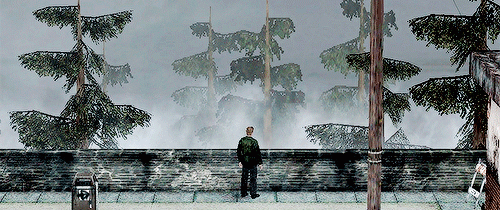

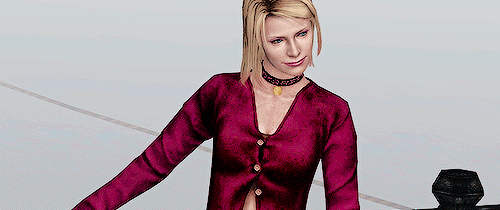




Happy Anniversary to Silent Hill 2! (September 24, 2001)
2K notes
·
View notes
